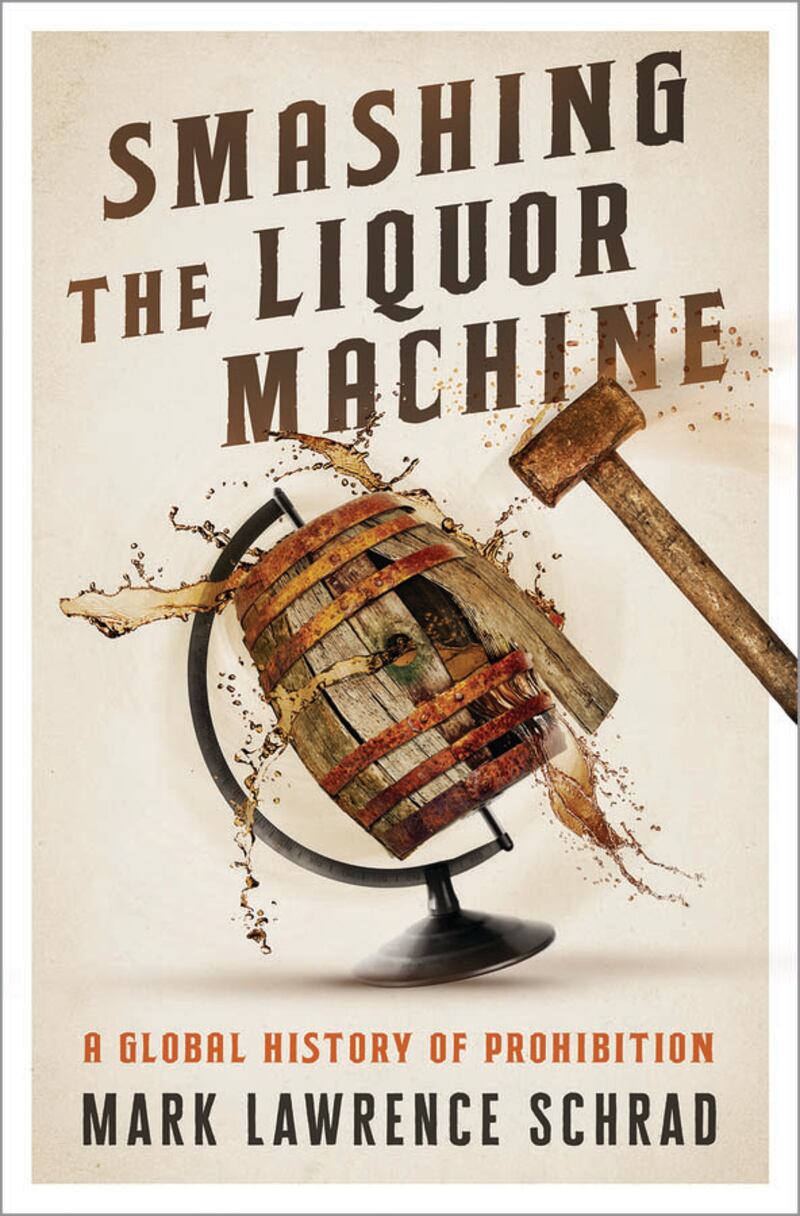“In the earlier years of my residence in New York,” wrote Thomas Low Nichols of his experiences in the 1840s, “I had occasion to go one day into a porterhouse, or grog shop, in one of the then up town, but not aristocratic wards of the city.”
A pioneering dietician and quirky historical figure in his own right, Nichols wrote on trends in health and hydrotherapy for a British audience that was thirsty for stories of America. His descriptions of New York bars as tumbledown, exploitative flytraps for the working poor would have resonated in London, Dublin, Moscow, Johannesburg, or anywhere throughout the 19-century world.
“Behind the bar was a strong, thick-lipped, muscular, determined-looking fellow, dealing out liquors to a set of very rough customers, in coarse trousers and red flannel shirts. They were not sparing in oaths, blackguardism, or tobacco juice.” The floors were sticky with the tar from overflowing spittoons. The menacing thugs, petty criminals, and pickpockets sized up the intruder in their midst. Their trademark red shirts and stovepipe hats identified them as volunteer firefighters and members of the Bowery Boys: the most notorious of the early gangs of New York. At a time when an errant spark could burn down half of the city’s wood-framed buildings, the city paid cash rewards to the volunteer fire companies that successfully doused the flames. Rival brigades often bare-knuckle brawled each other in the streets outside of burning buildings for the right to put out the fire and secure the lucre that came with it. In the process, they’d often loot the very buildings they were vowing to save.
ADVERTISEMENT

The brutish Paddy running the bar was their gang leader. Saloonkeepers the world over were the kingpins of the local community, and nowhere more so than New York’s immigrant slums. He was the local pawnbroker, bail bondsman, and gatekeeper to job opportunities, both licit and illicit, making him a powerful political player. And as Nichols described, like most barroom strongmen, this guy wasn’t content with simply slinging whiskey. “His position as foreman of a company of perhaps a hundred rough and ready young men was not without its influence. They all had votes; they were able perhaps to vote more than once; and, what was still more important, they could shout, fight, vote and keep others from voting,” turning the figurative economic muscle of the liquor traffic into literal political muscle. In big cities like New York, that meant throwing in with corrupt Tammany Hall Democrats and anti-immigrant, anti-Catholic “Know Nothings,” so named for replying to specific questions about their xenophobic, nativist movement with a simple, “I know nothing.”
The man who “steered them to victory at the polls and fisticuffs at fires” was the notorious “Captain” Isaiah Rynders. A former Hudson River boatman and knife-fighter, Captain Rynders built a thriving New York underworld of saloons and gambling dens, which he ran from his tavern at 11 Ann Street—Sweeney’s House of Refreshment—a favorite firefighter hangout. First from Sweeney’s, and then later from his Empire Club on Park Row—which loomed menacingly over City Hall—Rynders “gathered a club of a hundred pugilists and assassins from the purlieus of the great city, and these he had trained for such scenes of violence as from time to time should further the domination of his party over the city.” For years Rynders and his Empire Club thugs terrorized reform-minded Whigs and regular, law-abiding New Yorkers alike.
“‘I am Isaiah Rynders! My club is here, scattered among you!” he’d declare on voting days in primarily Whig wards. “Damn you! If you don’t leave these polls in five minutes, we will dirk every mother’s son of you!” Everyone knew the Bowery Boys would love nothing less. Within minutes, hundreds of men fled without ever voting, “for fear of assassination.”
When the dietician Nichols finally met the fearsome Rynders face to face, he described him as “a lithe, dark, handsome man of medium size and sinewy form, with a prominent nose, and piercing black eyes—a knowing smile, and a sharp look altogether.” Think of Daniel Day Lewis’s character in the Martin Scorsese movie The Gangs of New York, for which Rynders and his men provided the inspiration. Rynders “was cool and enterprising in his manners, and fluent and audacious in his speech. He had the reputation of being a member of the sporting fraternity, and one need not have been surprised to see him dealing at a faro table,” serving liquor in his saloons, or regaling politicians at a black-tie affair.
Captain Rynders was Gotham’s first mob boss.
Yet as Nichols describes for his British readers, Rynders’s crowning achievement came in the presidential election of 1844. The imperialist Manifest Destiny of Democratic candidate James K. Polk meant annexing the Republic of Texas as a slave state and sending troops to occupy the Oregon territory, which was then disputed with British Canada. Whig reformer Henry Clay warned that annexation of Texas would mean war against Mexico on the southern border and with Britain in the north over Oregon. In a razor-tight contest, the presidency would go to whomever won the 36 electoral votes of the most populous state, New York, and its most populous region: Manhattan. Isaiah Rynders was the swing-state kingmaker of American electoral politics.
On Nov. 4, 1844—the eve of the election—Rynders amassed a thousand skull-crackers outside of his Empire Club and led them on an ever-growing march through New York City: terrorizing any reformist Whigs into remaining at home, and herding all able-bodied men to the polls to vote for Polk and for Texas. Chanting their slogan “The Unterrified Democracy Is Coming!” the men marched through town, pelting Henry Clay supporters with hardened lumps of actual clay. “A torchlight procession of twenty thousand men, pouring like a vast river of flame through the streets of a great city,” Nichols described, “is a grand spectacle. The next day New York and the nation gave a majority for Polk, Dallas, Democracy, Texas, Oregon, war with Mexico, and war with England if necessary, which happily it was not.”
With Rynders tipping the scales, New York swung to Polk by just 5,100 of 486,000 votes cast. When the defeated Henry Clay himself met Rynders years later, he reportedly “inquired with a smile, ‘Have I the honor of an acquaintance with the man who elected Mr. Polk? The Captain, being a modest hero, blushed and responded in the affirmative.”
As acknowledgment of his service, Democratic president Polk rewarded Rynders with a lucrative no-show job in the New York customs house, allowing Rynders to focus all his energy on his saloons, gambling dens, racehorses, and other Tammany Hall machinations.
From Smashing The Liquor Machine: A Global History of Prohibition by Mark Lawrence Schrad. Copyright © 2021 by Oxford University Press and published by Oxford University Press. All rights reserved.







